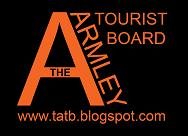When I found out — only very recently — that my mother may have been the illegitimate child of Frederick Oliver, the 2nd Marquess of Ripon and owner of the Studley Royal estate, I was shocked and very upset.
Her mother, Edith, worked at the stately home in North Yorkshire, probably as a maid, and when I was a child, my mother often took me to Studley — the manor house that burnt down in the 1940s — on day trips. I remember her telling me that she had spent the happiest days of her life there.
I think my mother knew, but I don’t think she ever talked to me about it. It’s hard to believe. No father’s name was put on the birth certificate and there is nobody around to ask any more to prove it. I only discovered the possibility when my biography was published last year.
My parents, Freda and Winston, were ordinary. We weren’t well off, but we had enough. I’m not one of those people that had an unhappy childhood: it was very warm and cosy. My mother had worked at the Ripon Fever Hospital and then became a nanny; my father was an engineer — he was out of work for some time at the height of the Depression in the 1930s, but later got work at the Turner tanning machine company.
When I was born, in 1933, I came to live at 38 Tower Lane, Upper Armley, a suburb on the west side of Leeds, and I was there until I was about 10.
It was one of three Victorian cottages bordered by a big wall, beyond which were the “Towers”, grand mansion houses. The cottage shared a yard but had quite a few rooms. The kitchen was surprisingly big, with a fireplace and a “set pot”, a contraption with a sink and a fire underneath, where you did the washing.
There was a sitting room that my mother called the “best room”, with a three-piece suite, my mother’s books and a gramophone — she loved opera, and my love for Puccini is because of her. And there were always fresh flowers.
There was an air-raid shelter in Tower Lane that we used during the war. I would worry about my father, who would always have gone down to the pub when the siren went off. I listened for his step because it was an individual one: he had an artificial leg. I’d always thought he’d lost it in the first world war, but he had actually hurt it in a building accident and it went gangrenous. He didn’t want to have it off but his mother, Esther, persuaded him. He said: “I suppose half a loaf is better than none.” I get my positivity from him. With me, the cup is always half full.
I had no brothers or sisters, nor ever wanted any. I had a tortoise called Billy — and my imaginary world.
I was always dressed very smartly, starched and ironed — in fact, my hair was probably ironed! I was taught proper table manners, and I still have the napkin ring from those days.
My mother inculcated in me a love of beautiful things and she wanted to give me everything. There was always a sense that she wanted to give me a better life; the life that I should have had.
She taught me to read when I was four and force-fed me books, but I didn’t resent it. She would read Dickens to me, and I had read all of them myself by the age of 12. We would walk from Tower Lane down Town Street — now kind of crummy, then very quaint — to Armley library, a very beautiful building, with a domed ceiling and stained glass.
It closed a few years ago to be refurbished and I was invited to reopen it. It was very emotional — my voice shook. I had had a library card there from the age of six. My mother also took me to the theatre and the ballet and concerts when we could afford it. Although it was totally different to the lives of my peers, it felt normal to me.
I was a real goody two-shoes at school, and by the time I was seven, I was writing stories. I sold my first story to the Children’s Magazine when I was 10, getting about seven shillings. It was about a little girl called Katie who wanted a pony. That idea came because my father always told me he would buy me a pony one day. But I didn’t want a pony: I wanted a typewriter. And I got one when I was about 12.
I have always had a lot of confidence because I had so much love. I always had a sense of destiny and I always knew I was going to be a writer.
Despite the fact that I married a movie producer and have lived in New York for the past 30 years, my childhood feels very close to me. In my mind’s eye, I can see my parents as they were then: my father in his starched shirt and my mother in her yellow 1940s-style dress. I can smell her lavender scent.
At the launch of The Ravenscar Dynasty recently, I thought about my mother. I was wearing millions of pounds worth of jewellery, lent to me by Moussaieff, and I thought, I just wish she could be here to share this.
Interview by Emma Wells
 Another famous ex Armley Resident remembers her roots.............
Another famous ex Armley Resident remembers her roots............. Another famous ex Armley Resident remembers her roots.............
Another famous ex Armley Resident remembers her roots.............



1 comment:
I remember reading Woman Of Substance many many years ago and how it gripped my mind that the book mentioned going past the end of the Street where I used to live up towards Charley Cake Park . I enjoyed reading this article very much as once again it took me back to memories of a friend from school I had that lived in the very end cottage on Tower Lane . Wonderful article!!! Once again thank you for the memories you bring me @};-
Post a Comment